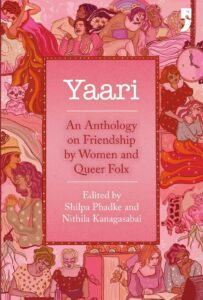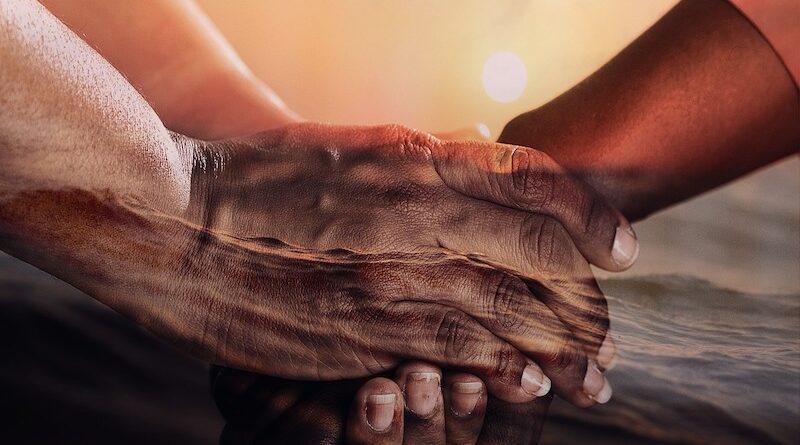Cooper : You’re a scientist, Brand.
Brand : So listen to me when I say that love isn’t something that we invented. It’s… observable, powerful. It has to mean something.
Cooper : Love has meaning, yes. Social utility, social bonding, child rearing…
Brand : We love people who have died. Where’s the social utility in that?
Cooper : None.
Brand : Maybe it means something more – something we can’t yet understand. Maybe it’s some evidence, some artefact of a higher dimension that we can’t consciously perceive. I’m drawn across the universe to someone I haven’t seen in a decade, who I know is probably dead. Love is the one thing we’re capable of perceiving that transcends dimensions of time and space.
A Conversation from the movie Interstellar
Love – it is messy, painful, liberating, imprisoning, joyous, heart-wrenching, raw, surreal, celestial; it is all this and so much more. It seems transient to the corporeal world for it is transcendental – suprahuman! We – the humans who have learnt to see the world around us in binary – make vain attempts to box it in our own worldly interpretations with solely a heteronormative view. Like cavemen, we are blinded by love’s lustrous brilliance – only to head right back into the cave – overwhelmed, in fear perhaps, awe… most certainly! Love is a spark divine in all creations – the dissonance lies within matter and the spirit; the reason thus of our limiting interpretation and understanding. Confining – it may be – but possibly looking deeper within, one can yet find the way.
Love’s transcendental constitution finds many manifestations from the binary to the non-conforming and non-binary, including marriage, physical love, to one we are acutely aware of but seldom acknowledge it or perhaps choose not to. Its manifestation in friendship.
This is a meditative journey one embarks on while unpacking “Yaari – An Anthology on Friendship by Women and Queer Folx”; edited by Shilpa Phadke and Nithila Kanagasabai; published by Yoda Press.
 A compelling read, one is persuaded to reflect on different streams of thoughts including how “Dominant representation of friendship, particularly in visual media, tend to be of male friendship.” (Introduction: Pg 9). This notion is instantaneously reinforced by a flashback of Jai and Veeru’s friendship immortalized in the movie Sholay. And when juxtaposed with the much loved TV series Friends, except for Phoebe and Joey – who represent the weird and wacky, misfits if you may – the others; who many would or do aspire to emulate; enter and form relationships that do not move beyond the binary and underpin notions laid down by society and its system, that man and woman can never be only friends. Here lies the problem that plays a huge role when it comes to gender stereotype, thereby creating a ‘taboo-making’ restricting societal mindset.
A compelling read, one is persuaded to reflect on different streams of thoughts including how “Dominant representation of friendship, particularly in visual media, tend to be of male friendship.” (Introduction: Pg 9). This notion is instantaneously reinforced by a flashback of Jai and Veeru’s friendship immortalized in the movie Sholay. And when juxtaposed with the much loved TV series Friends, except for Phoebe and Joey – who represent the weird and wacky, misfits if you may – the others; who many would or do aspire to emulate; enter and form relationships that do not move beyond the binary and underpin notions laid down by society and its system, that man and woman can never be only friends. Here lies the problem that plays a huge role when it comes to gender stereotype, thereby creating a ‘taboo-making’ restricting societal mindset.
This, also leads one to another consideration as elucidated in the read South Asian Feminisms or How I Learned to Make Friends by Subha Wijesiriwardena when she writes “Friendship too is political.” (pg 15). Solidarity here is the keyword and how “…being South Asian; we shared histories, personal and political, whether we knew it or not; we shared a sense that we were somehow similar in a way that could nor be explained by national identities.” (pg7)
Wijesiriwardena thoughtfully unwraps the evolution of feminist friendships, specifically in South Asian context, moving beyond borders – she writes about friends who “….push, they blur the lines, they ask the troublesome questions.” (Pg 18) Isn’t this what love and its different manifestations should be all about? Constantly challenging… evolving; your “people” being the “complicators” ‘the problem-makers” the “challengers.” (Pg18)
Writing a lesson in enabling solidarity in a clime of fear, vitriol, hate, “jingoism” and the “intensification of nationalism and authoritarianism across South Asia,” Wijesiriwardena urges us to “consider that the personal is political, and the political always personal” to challenge “power structures” that “rely on polarization and division.” She encourages us, asks us, setting our reflections in motion by inquiring “What are we willing to do for our friends?”
One consistent thread throughout Yaari is the necessity of looking at the universe… life in all its vastness; shattering structures created by society. Each read questions our corporeal insistence of perceiving the world in homogeneity. Is it our society that seeks to push us into a homogeneity and start from an atomic level; confining us so that we are conditioned to not look out of the box and not look beyond, to amplify polarity, divisiveness and therefore bolster hegemonic power and control. A framework, a structure built specifically for us to be herded as sheep. As Kate Winslet’s character Jeanine Mathews in the movie Divergent says: “The faction system is a living being composed of cells, all of you. And the only way it can survive and thrive is for each of you to claim your rightful place. The future belongs to those who know where they belong.”
Yaari is a must-read for one and all as it necessitates for us to move and navigate beyond time and space, enables us to discover that “words are inadequate to capture the essence of relationships” (pg37). It makes us interrogate the notion that only those relationships matter which are heteronormative. It helps us to surmise that such notions fortify hegemonic power structures; and to move beyond and outside this system would end power-play. Is this what friendship promises?
Buy this book from Amazon.In | Champaca | Midland Bookshop











